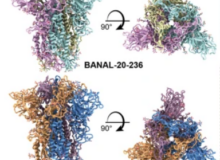Catch me at:
Title: “The Politics of Pesticides”
at Buffalo St Books
Ithaca, New York.
5pm, March 19th, 2020
A book talk with Mitchel Cohen, Robin Falk and myself.
We will be introduced by Emily Adams
Panel on Gene Editing
With Dag Falk and Lucy Sharratt of CBAN
Organic Connections Conference
Saskatoon, Canada
Friday Nov 6th, 2020.
Recent:
Title: “The Meaning of Life”. A workshop.
The 2019 Biodynamic Conference (Lake George, NY) Nov 20-24, 2019
Title: “The EPA: Friend or Foe?”
at: Soil Not Oil September 9-10, 2019
San Francisco, California
September 9th 7-8pm.
Title: “Are Conservatism and Genetic Determinism the Same Thing?”
Oslo, Norway ISHPSSB 2019
Date: July 7-12th, 2019
Title: “The Politics of Pesticides”
The Golden Notebook (Confirmed)
Woodstock, New York.
April 27th, 2019
A book talk with Mitchel Cohen and others.



